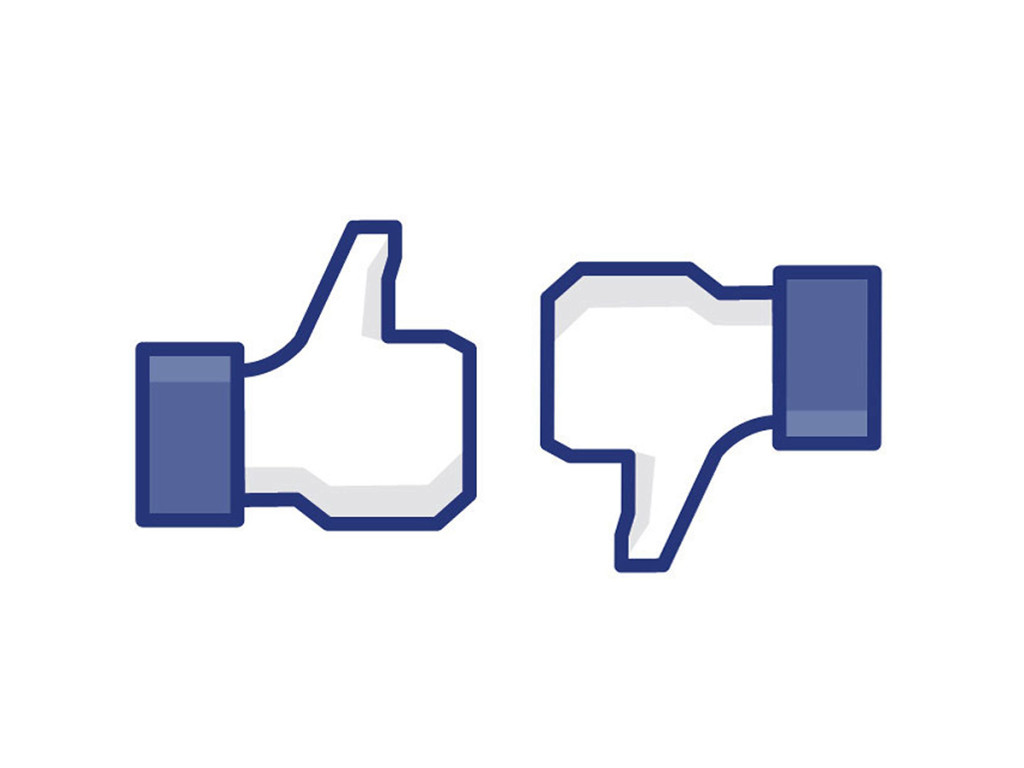
When scrolling through the numerous food pictures, event postings and invitations that fill my Facebook feed, there is often that sad post regarding a loss of one my friends or a tragic news article. It has crossed my mind how ill-fitting the “like” button seems to be as a response to this sort of posting. For this reason, I understand how many have been against the creation of a “dislike” button as a feature on its social networking service. In recent news, CNBC covered the company’s chief executive Mark Zuckerberg’s question and answer session in which he addressed that the “dislike” button is in the works.
For many, this button can provide an outlet to express an array of other emotions that simply cannot be reached with the “like” button. In some ways, it can be seen as unsupportive to “like” something that is tragic and the action could be misconstrued as being somewhat discouraging. However, if one wanted to express a different emotion, there is always the alternative to comment instead of liking something. Understandably, the “like” button serves as a quick response for people to interact on Facebook and is preferable for that reason. Although just as some supporters of the “dislike” application believe the “like” feature is too generalizing, isn’t the “dislike” button also a bit too broad?
“Dislike” doesn’t just encapsulate the idea of compassion toward a sad event but can also be misinterpreted as meaning one does not care, doesn’t “like” or some other negative opinion toward this event that is not supportive. Catering to the more negative emotions, Facebook will soon have to expand to address every other emotion and the once simplistic response of a “like” button will no longer serve its convenient purpose.
Additionally, when coming face-to-face with such a failure or catastrophe, it can be further discouraging and depressing to see a mass of “dislike” notifications clogging up their news feed. It is a legitimate concern that the installment of such a button may fuel cyberbullying on social media. As the number of children using social media is only on the rise, the age of which these kids begin accessing these websites is only decreasing. According to bullyingstatistics.org, “more than 1 in 3 young people have experienced cyberthreats online” and it is reported that “ 95 percent of social media-using teens who have witnessed cruel behavior on social networking sites.” Many worry that these perpetrators will only exploit the “dislike” feature as a means to torment others.
After weighing the pros and the cons, I am personally more opposed to the “dislike” option because it harbors too negative of an environment on Facebook. This option to “dislike” and “like” has functioned well for websites such as Reddit created for an interaction that utilizes the application as a sort of voting response. Reddit is an entertainment and social networking website, housing memes and viral videos. People access this website with the knowledge that this is a anonymous platform to interact in rather than the more personal one of Facebook that promotes engagements with friends, families and coworkers.
Zuckerberg himself addresses that the provision of this option may make responses to posts more like a sort of voting system. The platform of Facebook — in my opinion — is more of a space to connect with people and share information. Granted, Facebook isn’t — and shouldn’t be — a place exempt of the realistic and unfortunate parts of life. But, I don’t believe it should be a place that caters toward “disliking” things and disapproving people. If someone doesn’t “like” the picture or posting, they simply can choose not to “like” it. In the situation of “liking” a possibly sad posting, the culture of Facebook has evolved so people know you aren’t simply “liking” the tragic event, but offering your condolences and “liking” becomes a form of support. When it comes down to it, these responses are never going to match up with our real-life emotions. But the addition of thumbs down won’t eradicate the problem, only add one more negative and possibly ambiguous option. With this in mind, why encourage a flood of dislikes at the low points in your friends’ lives? So I say, “like” away.








